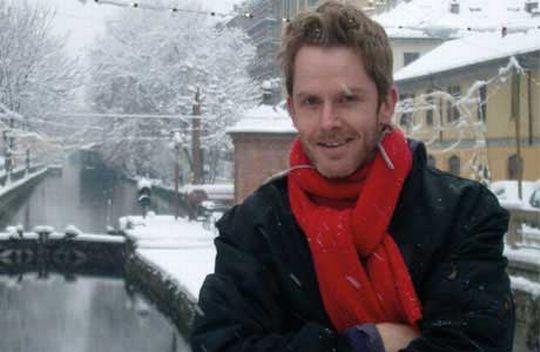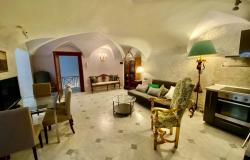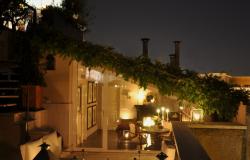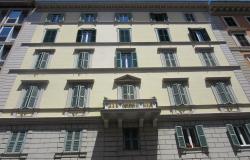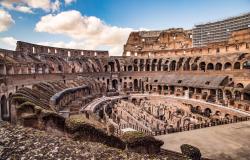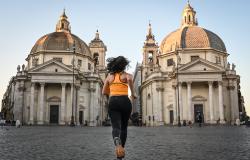In the fifth part of a series of interviews with those whose job it is to explain Italy to the world, Carol King speaks to Michael Day about his life as a foreign correspondent, and his views on Italy.
How long have you worked in Rome as a correspondent and who do you write for?
I cover Italy for ‘The Independent’. When I came to Italy five years ago (before working for ‘The Independent’) I arrived in Milan. So I’m here a lot of the time. But I like to go to Rome as often as I can. There’s a branch of the Foreign Press Association in Milan, too. And there’s a genuine rivalry between the cities – Rome is beautiful and has the seat of government. But Milan is less museum-like and it is the finance centre, with design, football, TV. Unlike England, which is totally London-centric, power and influence is spread a bit more evenly.
Do you have a typical day?
I read the newspapers and websites, listen to the news, then send an email before news conference in London, suggesting stories on the most interesting things I see. Some days it might appear like nothing’s happening, then a trial in Palermo will issue a verdict at 6pm, so you can never tell: press conferences and announcements tend to happen late in the day compared with Britain. The fact that Italy is one hour ahead of the UK is ideal – it means there’s an extra hour to check the news in the morning, but you still don’t finish too late. Things are changing with the increasing importance of the internet (and not necessarily for the better in the terms of the quality of news), which means there’s more pressure to file and publish stories immediately.
How do you select which stories to file?
I don’t choose the stories, the foreign desk does. Sometimes they contact me with a specific request – or about something I’ve missed – but usually, they let me know if they want something I’ve suggested to them.
How have you got your Italian to a level where you can do interviews and translate quotes accurately for a story?
I had some Italian lessons before I came to Italy, so I didn’t have to start from scratch. But I definitely learnt more, and learnt it more quickly, as a result of being in the country. Italians are still amused by my accent, though.
What is the biggest challenge you face in explaining events in Italy to your readers?
It’s important not to assume too much knowledge on the part of the reader. When you cover a subject for several years you can sometimes slip into the habit of writing stuff as if everyone’s read every word you’ve already written. The other challenge is logistical – there isn’t usually space in the news pages to do much more than present the bare essentials of new developments. But of course readers want answers to the big questions, such as “How did [Silvio] Berlusconi win three general elections?” I often wish I had more words to contextualise things, although ‘The Independent’ is good in that does allow more space for foreign news stories that make ‘good reads’.
What’s the most interesting story on Italy you’ve covered?
There are so many, including the Berlusconi circus and the Costa Concordia disaster. And the race-riots story in Calabria was interesting because it brought me face to face with how powerful and brazen the ’ndrangheta mafia is on its home turf. But perhaps my favourite story was about the little seaside town of Lido di Classe [in Ravenna] where the local population is set to be outnumbered by transsexual prostitutes. It seemed to say a lot about Italian attitudes to sex.
And what’s been the most shocking story?
Perhaps it was the piece I wrote about the fate of women such as Maria Concetta Cacciola and Lea Garofalo, who try to escape their mafia criminal and start life again – and how the state’s failure to support them as mothers of young children within the witness-protection program led to their horrible deaths. I think it was the saddest story I’ve written here.
You’re a regular guest on the LA7 TV show ‘Cristina Parodi Live’ as one of the Fratelli d’Italia, can you explain a little about the show and what being a Fratello d’Italia involves?
La7 is the smallest national channel and the only one that’s neither state-owned nor the property of Berlusconi. It’s seen as a bit hipper, younger and more intelligent than the other channels. ‘Cristina Parodi Live’, is its version of the standard afternoon show for housewives. I suspect La7 likes to think that its version is more for housewives with SUVs and ladies that lunch. The Fratelli d’Italia section at the start of the show involves three foreigners – mostly journalists – interviewing politicians or other figures in the news, usually controversial ones, for 20 minutes or so. But sometimes the Fratelli are involved in other parts of the two-hour show. The last time I was on, rather than participating in the speculation about the death of young girl whose body was found floating in a lake last month, I said it was obviously a terrible tragedy but that it was probably better to leave the magistrates and police to get on with their job of finding out what really happened. I effectively undermined the basis of about 50% of Italian TV, which is tawdry gossip masquerading as crime investigation, and that didn’t go down very well. But Italians love a ‘giallo’ – or mystery.
Italy is facing an economic crisis at the moment, so what are your thoughts on its future?
I read a fascinating statistic from the Bank of Italy at the end of last year, I think: If you consider all aspects of wealth – property, savings, money stashed abroad, etc –then the average Italian is wealthier than the average American, German, Japanese or Briton. This underlines how in terms of private wealth, Italy is a very rich country, in spite of its €2 trillion public debt. The problem is that half the population doesn’t pay tax. In a sense, Italy’s problem is more of a political one. How do you legislate to make people pay tax or to stop rampant nepotism and corruption or to instill a sense of civic responsibility and fairness? But that said, I think Italy is better placed than Spain – its banks aren’t a disaster. And maybe it’s better placed than France; at least under [Mario] Monti Italy has started facing up to its chronic problems and appears to be less in denial. After the election, however, it’s highly likely we’ll be back to another dog’s-dinner coalition. The lack of cohesion/co-operation/civic sense, call it what you will, was neatly illustrated last month (January) when ‘Corriere [della Sera]’ published the emblems of all the 200 or so parties due to participate in the coming election. The best we can hope for is that the centre-right PdL gets a drubbing. But Berlusconi’s TV appeal should never be underestimated.
What do you like most about Italy and what do you like the least?
The most: the food, the weather, the friendly, sociable people, the fact that there’s less random violence in Italian cities than in British ones, the amazing variety of landscapes – from Sicily to the Dolomites – and an incredible number of beautiful towns and cities. I also like the fact that most Italians – although they are quite thrifty – are not obsessed with money. In a supermarket if the bill comes to €10.02, they’ll often give you change for €10 because it’s easier. People don’t leave tips in restaurants and they’re not expected to. I went to an A&E unit is a small hospital in Friuli this summer after I’d injured my leg canyoning, and they were stitching me up before they’d even checked my EU health card. The contrast with say, the USA, couldn’t be greater.
The least: the bad service – in Tesco supermarkets in the UK they open a till if more than three people are queueing; at Esselunga they close a till if there are fewer that three people queueing; the cartels that operate everywhere – from pharmacists to banks and taxis; air pollution is very bad – particularly in Milan; parking on pavements, pushing in, etc; and the baleful influence of the Vatican on social politics is also depressing – Italy’s failure to allow even civil partnerships for gays is, in 2012, out of step with the civilised world.
What’s your favourite café or restaurant in Rome and why?
Italian cuisine is wonderful because you can have delicious food and pay peanuts for it. I like the cosy Trattoria da Augusto in the Trastevere (Piazza Dè Renzi, 15). But I’m in Milan more of the time and seafood here is very good – it has a ready supply from Genoa. But if you want to spend less I love Dongio (Via Bernardino Corio, 3) for Calabrian cooking and Il Brutto Anatroccolo (Via Evangelista Torricelli, 3) for very cheap but cheerful lunches.
If you could work anywhere else as a correspondent where would it be and why?
I think Spain. I love Southern Europe. I love the sun, the Med. I like the colours. I sometimes moan about the chaos and corruption in Italy. But if I went to Munich or Gothenburg, I’d probably be bored in a matter of days.
 Michael Day works as a correspondent for ‘The Independent’. He worked in London for the ‘Daily Express’ and ‘The Sunday Telegraph’, before taking his laptop to Italy in 2007, where he’s been ever since. He is on Twitter as @michael2day.
Michael Day works as a correspondent for ‘The Independent’. He worked in London for the ‘Daily Express’ and ‘The Sunday Telegraph’, before taking his laptop to Italy in 2007, where he’s been ever since. He is on Twitter as @michael2day.
